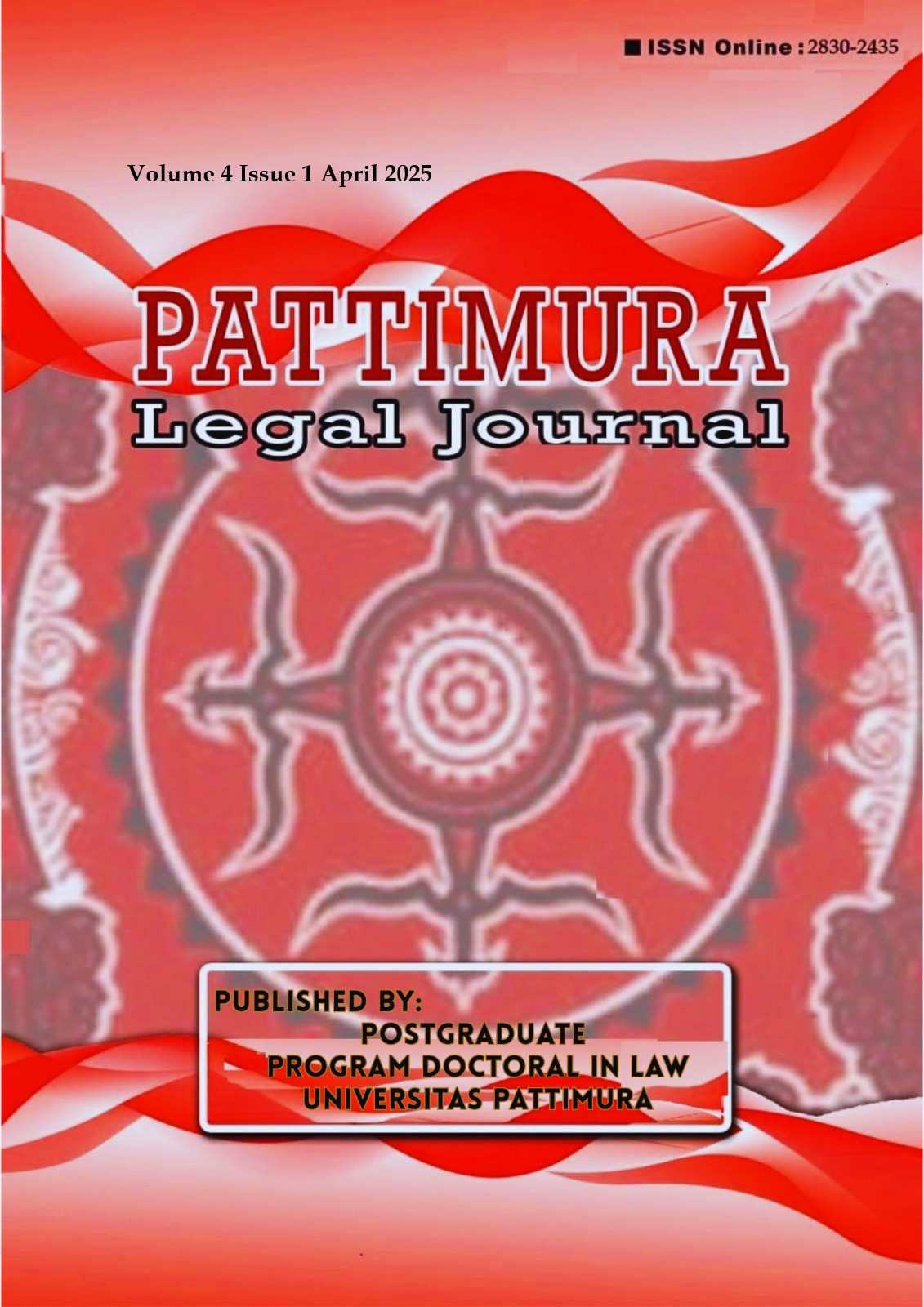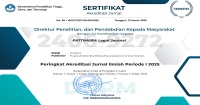Implications of District Court Decisions on the Stages of the 2024 Elections: Perspectives on the Indonesian Election System
Abstract
Introduction: The stipulation of Decision Number 757/Pdt.G/2022/PN.Jkt.Pst raises many pros and cons, namely related to the decision to postpone the 2024 elections. Through the Decision, the Central Jakarta District Court decided and adjudicated the Unlawful Acts dispute filed by the Adil Makmur People's Party against the General Election Commission. The Central Jakarta District Court should not have the authority to adjudicate disputes filed by the Adil Makmur People's Party because it violates absolute competence.
Purposes of the Research: The purpose of this study is to analyze the position of the Decision and its legal consequences on the people's sovereignty in the electoral system in Indonesia.
Methods of the Research: The research methods used are normative legal research methods, with a conceptual approach, a statue approach and a case approach.
Results Main Findings of the Research: The research found that (1) the General Election Commission was right to appeal, showing that the 2024 election must be in accordance with the constitution, and (2) the postponement of the election violates the sovereignty of the people, as the election system in Indonesia should be carried out every five (5) years, and does not recognize the term postponing the election.
Downloads
References
Aris, Mohammad Syaiful. “Penataan Sistem Pemilihan Umum Yang Berkeadilan Untuk Penguatan Sistem Presidensiil Di Indonesia.” Yuridika 33, no. 2 (2018): 290–315. https://doi.org/10.20473/ydk.v33i2.7379.
Aspani, Budi. “Kompetensi Absolut Dan Relatif Peradilan Tata Usaha Negara Menurut Undang-Undang Nomor 5 Tahun 1986 Jo. Undang-Undang Nomor 9 Tahun 2004.” Jurnal Fakultas Hukum Universitas Palembang 16, no. 3 (2018): 344–52.
Asshiddiqie, Jimly. Pengantar Ilmu Hukum Tata Negara. Jakarta: Rajawali Pers, 2014.
Cahyady, Yadhy. “Implementasi Peraturan Mahkamah Agung Nomor 2 Tahun 2019 Terhadap Perbuatan Melanggar Hukum Oleh Badan Dan/Atau Pejabat Pemerintahan Dalam Rangka Penagihan Pajak Dengan Surat Paksa.” Jurnal Pajak Dan Keuangan Negara (PKN 3, no. 1 (2021): 165–77. https://doi.org/10.31092/jpkn.v3i1.1232.
CNN Indonesia. “Bahlil Kembali Bicara Penundaan Pemilu, Singgung Perubahan Konstitusi.” www.cnnindonesia.com, 2022. https://www.cnnindonesia.com/nasional/20220920170137-32-850395/bahlil-kembali-bicara-penundaan-pemilu-singgung-perubahan-konstitusi.
Hadi, Fikri, Suarno Abadi, and Farina Gandryani. “Tinjauan Yuridis Penundaan Pemilihan Umum Melalui Putusan Pengadilan Negeri (Analisis Putusan PN Jakarta Pusat Nomor 757/Pdt.G/2022/PN Jkt.Pst).” Wijaya Putra Law Review 2, no. 1 (2023): 77-94. https://doi.org/10.38156/wplr.v2i1.92.
Haris, Syamsudin. Partai, Pemilu, Dan Parlemen Era Reformasi. Jakarta: Yayasan Pustaka Obor Indonesia, 2014.
Indradjaja, Nobella, Muhammad Azzamul Abid, and Vika Andarini. “Pemilihan Umum Serentak Dan Wacana Penundaan Pemilihan Umum Dalam Perspektif Azas Demokrasi Indonesia.” Wijaya Putra Law Review 1, no. 2 (2022): 108–19. https://doi.org/10.38156/wplr.v1i2.73.
Kusnardi, Moh., and Harmaily Ibrahim. Pengantar Hukum Tata Negara Indonesia. Jakarta: Pusat Studi Hukum Hukum Tata Negara Universitas Indonesia, 1988.
Marzuki, Peter Mahmud. Penelitian Hukum,. Jakarta: Kencana, 2016.
Prasetyoningsih, Nanik. “Implementasi Hak Politik Warga Negara Didalam Pemilihan Umum Legislatif 2009.” Jurnal Konstitusi 2, no. 1 (2009): 24–41.
Satriawan, Iwan, and Tanto Lailam. “Open Legal Policy Dalam Putusan Mahkamah Konstitusi Dan Pembentukan Undang-Undang.” Jurnal Konstitusi 16, no. 3 (2019): 559–84. https://doi.org/10.31078/jk1636.
Siagian, Abdhy, Habib Ferian Fajar, and Rozin Falih Alify. “Konstitusionalitas Penundaan Pelaksanaan Pemilihan Umum Tahun 2024.” Jurnal Legislasi 5, no. 2 (2022): 2. https://doi.org/10.20956/jl.v5i2.21026.
Zaini, Ahmad. “Demokrasi: Pemerintah Oleh Rakyat Dan Mayoritas.” Al-Ahkam: Jurnal Hukum, Sosial Dan Keagamaan 14, no. 1 (2018): 25–41.
Copyright (c) 2025 Inagatha Setyarahma Pangastuti, Radian Salman, Mohammad Syaiful Aris, Luh Putu Yeyen Karista Putri (Author)

This work is licensed under a Creative Commons Attribution-NonCommercial 4.0 International License.
Authors who publish their manuscripts in this Journal agree to the following conditions:
- The copyright in each article belongs to the author, as well as the right to patent.
- Authors are able to enter into separate, additional contractual arrangements for the non-exclusive distribution of the journal's published version of the work (e.g., post it to an institutional repository or publish it in a book), with an acknowledgment of its initial publication in this journal.
- Authors are permitted and encouraged to post their work online (e.g., in institutional repositories or on their website) prior to and during the submission process, as it can lead to productive exchanges, as well as earlier and greater citation of published work.
- Authors have the right to self-archiving of the article (Author Self-Archiving Policy)






















